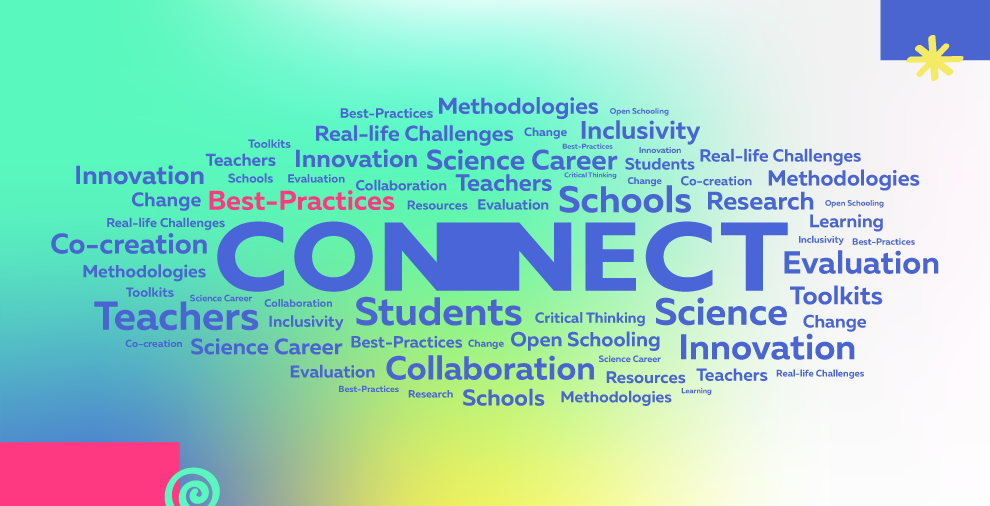News . Our Blog A Catalogue of Inspiring Resources for Open Schooling and stakeholder engagement

The CONNECT project is introducing a novel form of science teaching into school curricula in five countries: UK, Greece, Brazil, Spain, and Romania. This innovation is based on the concept of ‘science-action’: a problem-solving activity where students learn science knowledge, skills, and attitudes to tackle a future-oriented socio-scientific issue. Students then apply them by implementing actions in collaboration with scientists, families, and other stakeholders to benefit their lives, their community, and society. The project also promotes the so-called ‘Open-ended scenarios’, where students also tackle socio-scientific issues in collaboration with different stakeholders with participatory research approaches. As an Open Schooling project, stakeholder engagement has a key role in implementation.
We are happy to present the “Catalogue of Inspiring Resources” for open schooling and stakeholder engagement, which has been developed by the Living Lab for Health at IrsiCaixa with the collaboration of the CONNECT consortium and it is available on the website for teachers and other stakeholders.
This catalogue is aimed to inspire the CONNECT partners and other stakeholders by sharing open schooling and stakeholders’ engagement approaches that can be implemented in the design of educational materials, such as those that will be developed for creating the ‘Science Actions’ and ‘Open-ended scenarios’ within CONNECT.
Inclusion criteria:
The 32 inspiring resources included in this catalogue exemplify approaches to innovate in STEAM education with open schooling resources that have been selected according to a set of previously defined inclusion criteria. These criteria were defined throughout a collaborative work between partners in the Consortium and the Living Lab for Health at IrsiCaixa, and include:
- learning through: students centred and systemic approaches; research; innovation; collaboration; critical thinking; evaluation;
- learning for inclusivity and for change;
- learning about career pathways and
- potential to scale and spread innovations.
For each of these selection criteria, different projects and practices were collected, such as lesson plans, activities, interventions and networks, where different methodologies are applied, such as problem-based learning, participatory action research, system thinking, open innovation and citizen science, among others.
We encourage you to have a glimpse at it, as it can serve as inspiration for any stakeholder willing to innovate in STEM education with Open Schooling resources.